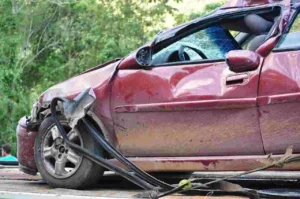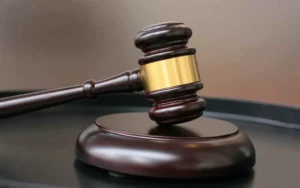Car Accident Attorney West Palm Beach

There’s no disputing that people who are seriously injured in motor-vehicle collisions face considerable physical, emotional, and financial hurdles. Lost wages, rehabilitation costs, and other expenses can add up quickly. There are also non-economic damages to consider such as pain and suffering. If you were hurt in a wreck, turn to our car accident attorneys in West Palm Beach to determine the most strategic way to proceed.
As soon as you call our office, we will talk with you honestly about your claim and begin creating a plan to pursue the compensation you deserve. Call 561-299-3999 to schedule a free case evaluation.
As soon as you call our office, we will talk with you honestly about your claim and begin creating a plan to pursue the compensation you deserve. Call 561-299-3999 to schedule a free case evaluation.
Items to Bring to Your Meeting with a Car Accident Attorney in West Palm Beach

If you've been involved in a car accident in West Palm Beach, scheduling a consultation with a car accident attorney is a crucial step towards understanding your rights and seeking compensation.
During the initial consultation, your attorney will ask questions about the collision to determine if you have grounds for a claim. If the circumstances of the wreck in which you were involved warrant a claim, you can expect to discuss potential strategies for pursuing compensation.
- Identification and Contact Information: Provide your driver's license or any other form of identification, as well as your current contact information. This helps in establishing your identity and allows the attorney to reach out to you as needed.
- Accident Documentation: Bring any documentation related to the car accident. This includes the accident report filed by the police, photographs or videos taken at the scene, and any notes you may have made about the incident. These materials can provide valuable insights into the circumstances surrounding the accident.
- Insurance Information: Provide copies of your auto insurance policy, including details of coverage and any correspondence with your insurance company regarding the accident. This helps the attorney understand the extent of your insurance coverage and any potential disputes with the insurance provider.
- Medical Records and Bills: Bring copies of medical records detailing the injuries sustained from the accident, as well as any medical bills incurred for treatment. This information is crucial for assessing the impact of the accident on your health and well-being.
- Witness Statements or Contact Information: If there were witnesses to the accident, bring their statements or contact information. Witness testimonies can corroborate your account of the events and strengthen your case.
- Employment Information: If the accident has affected your ability to work, bring documentation from your employer regarding missed workdays, changes in job duties, or any other relevant information. This helps in evaluating potential claims for lost wages or diminished earning capacity.
- Communication with Other Parties: If you've had any communication with the other parties involved in the accident or their insurance representatives, bring copies of correspondence, emails, or letters exchanged. This can provide insights into liability and negotiations.
- Questions and Concerns: Prepare a list of questions or concerns you have about your case, such as the legal process, potential outcomes, and the attorney's experience in handling similar cases. This ensures that you gain a clear understanding of what to expect and how your attorney can assist you.
By gathering these essential items and information before your consultation with a car accident attorney in West Palm Beach, you can help streamline the initial assessment of your case and facilitate a productive discussion about your legal options. Remember, the more prepared you are, the better equipped your attorney will be to advocate for your rights and pursue fair compensation for your injuries and damages.
Will I Have to Pay Upfront for Legal Representation?

You should not have to worry about paying legal fees at a time when your family may be struggling to cover just the necessities. That’s why at Donaldson & Weston, our car accident lawyers in West Palm Beach will not charge any attorneys’ fees unless we secure a settlement or verdict on your behalf. The initial consultation is absolutely free.
What is a Contingency Fee?
A contingency fee is a payment arrangement commonly used in personal injury cases where the lawyer's fee is contingent, or dependent, upon successfully obtaining compensation for the client. This means that you only pay the attorney if they win your case or negotiate a settlement on your behalf. If the case is unsuccessful, you typically do not owe any legal fees.
Key Aspects of Contingency Fee Structures:
- No Upfront Costs: One of the primary advantages of a contingency fee arrangement is that it allows accident victims to pursue legal action without paying any upfront costs. This can be particularly beneficial if you're facing financial strain due to medical bills or lost wages resulting from the accident.
- Percentage Basis: Contingency fees are usually calculated as a percentage of the compensation recovered in your case. The specific percentage can vary, but it typically ranges from 33% to 40% of the settlement or court award. This percentage is agreed upon between you and your attorney before they begin working on your case.
- Risk Sharing: By agreeing to a contingency fee, your attorney shares the financial risks of pursuing your case. This incentivizes them to work diligently to achieve the best possible outcome for you, as their payment is directly tied to the success of your case.
- Transparent Agreement: Before hiring a lawyer on a contingency fee basis, it's essential to have a clear understanding of the terms of the agreement. Your attorney should explain the percentage fee, any additional costs that may be deducted from your settlement (such as court fees or expert witness fees), and how expenses will be handled throughout the legal process.
- Ethical Standards: Contingency fee arrangements are regulated by state bar associations to ensure fairness and ethical conduct. Your attorney should provide you with a written agreement outlining the fee structure and other terms of representation, which you should review carefully before signing.
Benefits of Contingency Fees for Accident Victims
- Access to Justice: Contingency fees enable individuals who might not otherwise afford legal representation to pursue their rights and seek compensation for injuries caused by someone else's negligence.
- Motivated Representation: Because your attorney's payment is contingent upon the outcome of your case, they are motivated to work diligently and effectively to maximize your compensation.
- No Financial Risk: Since you do not pay upfront legal fees, you can pursue your claim without worrying about adding to your financial burden during an already stressful time.
What Is the Statute of Limitations for Personal Injury Lawsuits in Florida?

If you've been injured in an accident in Florida, understanding the timeframe within which you can file a personal injury lawsuit is crucial. Known as the statute of limitations, this legal deadline determines how long you have to initiate legal proceedings after an incident. Here's what you need to know about the statute of limitations for personal injury lawsuits in Florida:
What is the Statute of Limitations?
The statute of limitations refers to the period within which a lawsuit must be filed after an injury or accident occurs. In Florida, the statute of limitations varies depending on the type of case and the circumstances surrounding it. For personal injury cases, including those arising from car accidents, the statute of limitations typically begins on the date of the accident or when the injury was discovered or should have been discovered.
Statute of Limitations for Personal Injury Lawsuits in Florida
- General Personal Injury: In Florida, the statute of limitations for most personal injury cases, including those resulting from car accidents, is four years from the date of the accident. This means you have up to four years from the date of the accident to file a lawsuit seeking compensation for your injuries and damages.
- Wrongful Death: If the accident resulted in the death of a loved one and you are considering a wrongful death lawsuit, the statute of limitations in Florida is generally two years from the date of death. It's important to note that this timeframe may vary depending on the specific circumstances of the case, so consulting with an attorney promptly is advisable.
- Exceptions and Special Circumstances: Certain situations may warrant exceptions to the standard statute of limitations. For instance, if the injury victim is a minor at the time of the accident, the statute of limitations may be extended. Additionally, cases involving government entities or medical malpractice may have different filing deadlines and procedural requirements.
Why is the Statute of Limitations Important?
Understanding and adhering to the statute of limitations is critical for several reasons:
- Preservation of Evidence: As time passes, evidence related to the accident may become more difficult to obtain or may be lost entirely. Filing a lawsuit within the statute of limitations helps ensure that crucial evidence, such as witness statements, medical records, and accident reports, can be properly documented and utilized in your case.
- Legal Rights: Failing to file a lawsuit within the statute of limitations can result in your claim being barred from court. This means you may lose the opportunity to seek compensation for your injuries, medical expenses, lost wages, and other damages resulting from the accident.
- Peace of Mind: Initiating legal proceedings within the appropriate timeframe provides peace of mind, knowing that you are actively pursuing justice and compensation for the harm you've suffered due to someone else's negligence or misconduct.
Navigating the statute of limitations and other legal complexities surrounding personal injury claims can be challenging without legal guidance. If you've been injured in an accident in West Palm Beach or elsewhere in Florida, consulting with an experienced personal injury attorney can help ensure that your rights are protected and that you take timely action to pursue the compensation you deserve. An attorney can assess the specifics of your case, advise you on applicable deadlines, and guide you through the legal process with expertise and compassion.
Why Is My Car Accident Lawyer Suggesting I Stay off Social Media?

If you've recently been involved in a car accident and are pursuing legal action, you may wonder why your attorney advises you to refrain from using social media. This precaution isn't about restricting your personal life but is a strategic measure to protect your case. Here's why your car accident lawyer in West Palm Beach suggests limiting your social media activity:
Preserving Evidence and Protecting Your Claim
- Impact on Your Credibility: Anything you post on social media can potentially be used against you in court. Insurance companies and defense attorneys often scour social media profiles for evidence that could undermine your claim. For example, if you claim to have suffered serious injuries but post pictures of yourself engaging in physical activities, it could be used to argue that your injuries are not as severe as you've stated.
- Misinterpretation of Posts: Social media posts can be easily misinterpreted. Even innocent posts or comments can be taken out of context and used to challenge your credibility or the severity of your injuries. It's important to remember that what you share online may not accurately reflect the full extent of your situation.
- Privacy Concerns: Privacy settings on social media platforms may not fully protect your posts from being discovered and used in legal proceedings. Defense attorneys may request access to your social media accounts during the discovery phase of your case, potentially leading to a court order to disclose certain information.
- Legal Advice to Protect Your Case: Your attorney's recommendation to avoid social media during your case is based on their experience in handling similar situations. They understand the potential risks associated with social media use and aim to safeguard your legal interests and maximize the chances of a favorable outcome.
Guidelines for Social Media Use During Your Case
- Pause Social Media Activity: Consider temporarily deactivating or limiting your social media accounts until your case is resolved. This can help minimize the risk of inadvertently harming your case with posts that could be misconstrued.
- Be Mindful of Content: If you choose to remain active on social media, be cautious about what you post. Avoid discussing your accident, injuries, medical treatment, or legal proceedings. Refrain from sharing photos or videos that could be interpreted in a way that contradicts your claims.
- Educate Friends and Family: Inform your friends and family members about the importance of not tagging you in posts or sharing information about your accident or recovery on social media. Their posts could also potentially impact your case.
If you have questions about social media use or need guidance on how to protect your legal interests during your car accident case, don't hesitate to consult with your car accident lawyer in West Palm Beach. They can provide personalized advice and strategies to help you navigate the complexities of your case while safeguarding your rights and potential compensation. By working together and being mindful of your social media presence, you can strengthen your position and improve the chances of a successful resolution to your car accident claim.
Do Any Damages Caps Apply to Car Accident Cases?

In the state of Florida, there are damages caps that apply to punitive awards. That cap is usually $500,000 or triple the compensatory damages, whichever is greater. If financial gain was a motivation of the tortfeasor (the alleged wrongdoer), the punitive damages cap increases to $2 million or four times the compensatory damages. If you were intentionally harmed, there is no cap on punitive damages. Unfortunately, you cannot obtain a punitive damages award from a government entity.
If you're pursuing a car accident claim in West Palm Beach, understanding potential limitations on damages is crucial. Certain laws, known as damages caps, may impact the amount of compensation you can receive in specific circumstances. Here's what you need to know about damages caps and how they may apply to your case:
What are Damages Caps?
Damages caps are legal limits imposed on the amount of compensation that can be awarded to a plaintiff in certain types of cases, including personal injury claims arising from car accidents. These caps typically apply to non-economic damages, such as pain and suffering, emotional distress, and loss of consortium.
Types of Damages Caps
- General Damages Caps: Some states impose a cap on non-economic damages in all types of personal injury cases, including those resulting from car accidents. These caps are intended to limit the subjective damages that are more difficult to quantify, such as pain and suffering.
- Medical Malpractice Exceptions: In some states, including Florida, there are exceptions to damages caps for cases involving medical malpractice. These exceptions may not apply to car accident cases unless there are specific circumstances, such as egregious conduct by the defendant.
Florida's Approach to Damages Caps
In Florida, there is typically no statutory cap on non-economic damages in personal injury cases, including those arising from car accidents. This means that injured parties may seek full compensation for their pain and suffering, emotional distress, and other non-economic losses without being subject to a predetermined limit set by law.
Factors Influencing Compensation
While there may not be a statutory cap on non-economic damages in Florida car accident cases, the amount of compensation you receive can still be influenced by various factors, including:
- Severity of Injuries: The extent and severity of your injuries play a significant role in determining the amount of compensation you may be entitled to. More severe injuries that result in long-term disabilities or significant pain and suffering may lead to higher compensation awards.
- Evidence and Documentation: The strength of your case, supported by medical records, expert testimony, and other evidence, can impact the amount of damages awarded. It's essential to gather and present compelling evidence to support your claim for damages.
- Comparative Fault: Florida follows a comparative fault system, where your compensation may be reduced if you are found partially at fault for the accident. Understanding your degree of fault and how it may affect your compensation is important in assessing potential damages.
Navigating the complexities of damages caps and understanding how they may apply to your car accident case requires the expertise of a knowledgeable car accident lawyer in West Palm Beach. They can assess the specific circumstances of your case, explain applicable laws and regulations, and advocate effectively to maximize your compensation. By seeking legal guidance early in the process, you can protect your rights and pursue fair compensation for your injuries and losses resulting from a car accident.
When Can a Car Accident Victim Pursue Punitive Damages?

In the aftermath of a car accident, understanding your legal rights to pursue various types of damages, including punitive damages, is essential. Here’s a comprehensive look at when punitive damages may be pursued by car accident victims in West Palm Beach:
What Are Punitive Damages?
Punitive damages, also known as exemplary damages, are intended to punish the defendant for egregious conduct and deter similar misconduct in the future. Unlike compensatory damages, which aim to compensate victims for their losses, punitive damages are awarded as a form of punishment and to send a message that certain behaviors will not be tolerated.
Conditions for Pursuing Punitive Damages in Car Accident Cases
- Gross Negligence or Intentional Misconduct: Punitive damages are typically awarded when the defendant’s actions go beyond ordinary negligence and involve gross negligence or intentional misconduct. This may include driving under the influence of alcohol or drugs, reckless driving, or engaging in deliberate misconduct that resulted in the accident.
- Clear and Convincing Evidence: To justify punitive damages, the plaintiff must provide clear and convincing evidence that the defendant acted with intentional misconduct or gross negligence. This standard of proof is higher than the preponderance of evidence required for compensatory damages.
- Deterrence and Public Policy Considerations: Courts consider whether awarding punitive damages serves the purpose of deterring similar misconduct in the future and aligns with public policy objectives. Punitive damages are not meant to compensate the victim directly for their losses but to address the defendant’s conduct and prevent future harm.
Examples of Situations Where Punitive Damages May Apply
- Driving Under the Influence (DUI): If the at-fault driver was under the influence of alcohol or drugs at the time of the accident, resulting in serious injuries or fatalities, punitive damages may be pursued to deter drunk driving and hold the driver accountable for their reckless behavior.
- Road Rage or Aggressive Driving: Cases involving road rage or aggressive driving behaviors that lead to significant harm may warrant punitive damages, especially if the driver’s actions were deliberate and malicious.
- Repeat Offenders: If the defendant has a history of similar misconduct or has been previously convicted of driving offenses, punitive damages may be considered to send a strong message against repeated reckless behavior.
Determining whether punitive damages are applicable in your car accident case requires a thorough assessment by an experienced car accident attorney in West Palm Beach. By seeking legal guidance, you can better understand your options for seeking full and fair compensation, including punitive damages when appropriate Your West Palm Beach car accident attorney can review the police report, interview eyewitnesses, and assess other evidence to determine if punitive damages may be available in your case. At Donaldson & Weston, we have extensive experience helping accident victims throughout Florida fight for punitive awards.
Set up a Free Consultation with a Car Accident Lawyer

Pursuing a car accident claim involves navigating a complex legal landscape to seek compensation for injuries, damages, and losses incurred due to someone else’s negligence. From gathering evidence and negotiating with insurance companies to potentially litigating in court, the process requires expertise and diligence. Consulting with an experienced car accident attorney can provide invaluable support, ensuring your rights are protected and maximizing your chances of a favorable outcome.
When you're ready to speak with a lawyer about your claim, call our West Palm Beach car accident lawyers at 561-299-3999. If your injuries prevent you from coming to us, a member of our team can come to you. The consultation is free, and no attorneys' fees are charged unless we win your case.
